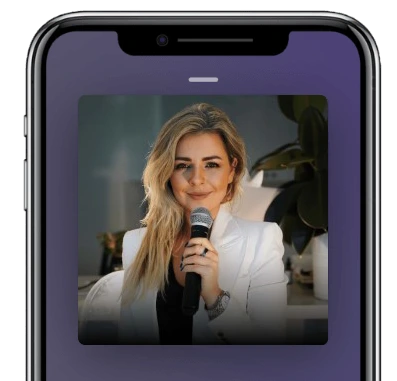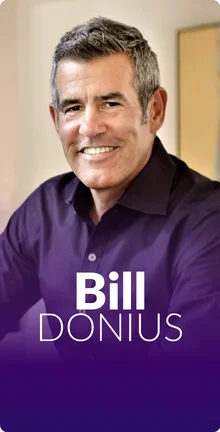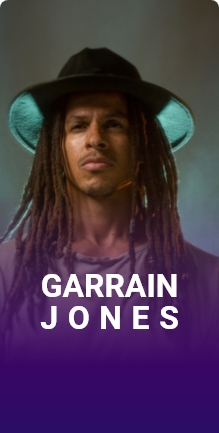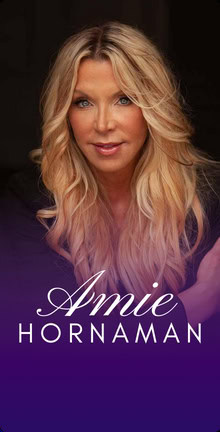In this Episode
- [02:54]Juliana Andreeva shares her innovative voice biohacking method to unlock vocal potential and enhance well-being.
- [05:23]Juliana explains how vocal exercises can improve thyroid hormone levels and mental health in 70% of cases.
- [12:26]Juliana discusses how singing can help executives relax and improve mental health.
- [23:09]Juliana proposes using music to stimulate the nervous system and help people retain their connection to their feelings and sensations, particularly in adulthood.
- [27:47]Stephan mentions Janet Doman’s process for reducing pressure on kids while learning.
- [32:25]Juliana shares her personal experience with inflammatory processes and how they relate to voice work, emphasizing the importance of attention and focus exercises.
- [38:38]Juliana encourages listeners to try relaxation techniques, such as deep breathing through the nose or mouth, to help reduce muscle tension and promote better sleep.
- [45:52]Juliana offers voice coaching and biohacking services, with a focus on mental health and productivity.
Juliana, it’s so great to have you on the show.
Hey, Stephan. Nice to meet you here and all of you guys here. It’s so nice to have some space to share with you.
It was great to meet you at the Biohacking Congress, where we first met. I get this intuitive nudge to invite different people I meet to my show. You were the one that I got the nudge, so I’m glad to have you here.
Yeah, thank you. Thank you for doing that.
First, let’s explain how voice biohacking differs from just getting a voice coach. What’s a voice coach going to teach you versus a voice biohacker?
There’s a huge difference. First of all, it didn’t help. I couldn’t help myself with that. Voice coaches didn’t help me. I thought I was sure. I have no singing voice, but that was the beginning. Singing voice now is a side effect. That’s the main difference.
Voice coaching provides you with some exercises. You bind exercises to optimize your voice, and the goal is different. The goal of voice coaching is, “Do you have a nice voice, beautiful voice singing, probably performing, sitting in a venue or releasing songs on Spotify, some voice production or music videos, social media, or that kind of stuff?” It’s some professional direction, hobby, or whatever, but it’s still art.
We have a physiological need to express deep emotions.
My definition of singing, in terms of voice biohacking, singing is not the art. Singing and any sound of chanting is a physiological need of our body. We have a physiological need to express deep emotions. It’s like an orgasm. The body needs to have some close person around or have some chemical process, loving somebody, keeping connected, and relaxing around someone. It’s also a physiological need and psychological need.
Chanting, making sounds in the body, and expressing your deep emotions are physiological needs. You guys can recognize yourself. I discovered that through my practice, and I’ve been practicing for more than 15 years now. I started as a voice coach.
People do not care if they release a song on Spotify or perform as an artist. They are not ready to fight with social media, show business, and the industry. They just want to make sounds to express emotions. I thought I should give people what they account for, which really clicked. We tapped into some medical miracles there.
What would be an example of a medical miracle?
For example, one of the probably strongest, we have five cases of thyroid condition. The first was mine. I’m having a very exciting story, a Ph.D. endocrinologist. I’ve been prescribed some thyroid drugs and thyroid hormones, as people usually are prescribed. You take that daily or for all your life until you die.
I started to use my method. I started to work with my throat tension and this thing that attacks your hormones and affects your brain chemistry. That’s the difference between voice biohacking and voice coaching. I’ve been doing blood tests once in two or three months, lasting six months. She was around. When she saw what was happening, she guided me through this.
She prescribed me that, and she helped me to get out of that. What does she do now? She’s singing in a venue. She’s around 50 years old now. She was 47 when she started to sing, so several years passed.
Singing is a tool to expand and extend thoughts, and slow down your thoughts. Share on XShe found me, and she started to sing. Now she’s singing jazz at the venue of a jazz band, and she’s still Ph.D. in endocrinology. That’s the reason for four more cases with all the blood tests. Also, thyroid tumors decreased four times. The doctors were like, “Probably there was a mistake somewhere.”
It takes time to do research. We are getting ready to do our studies with that. There are many conditions like digestion conditions and hard depression cases. Especially now, due to the geopolitical situation, people are going through some hardships in different countries.
Mostly, since I’m working with high-achieving people or C-level executives, they’re all burned out or stressed because of the economic situation. People sacrifice their emotional state with everything. They cannot do what they want to do, and they can’t relax. They cannot take time for that because they have many responsibilities.
Chronic condition is the final result of a long struggle whenever you cannot relax and cannot switch to parasympathetic mode. The Vagus nerve is responsible for that. In our singing, it is proven and backed by science. Singing, chanting, and even humming stimulate our vagus nerve. We have a Forbes article about that. That’s the reason.
People mostly attend those sessions for medical and mental reasons to avoid medical and health conditions. They support their income, the company’s revenue, their relationship with their family, and themselves.
Stress is disentangled with hormones and with our brain chemistry.
You’re saying that by doing these voice exercises if someone has a thyroid condition and they get blood tests that show that the various thyroid hormone levels are off, they can do these vocal exercises, change the thyroid, and improve their blood markers.
Yeah, in a huge number of cases, improve or even fix it completely. I have the best blood tests ever right now. I’m having that right now, so I’m checking that because I’m responsible for what I do. Sometimes, it’s a very critical condition. Of course, you cannot rely on the psychosomatic work offered here.
I think, and I believe what the Ph.D. told me, is that in 70% of cases, the reason is our mental health, our stress. Stress is disentangled with hormones and with our brain chemistry. It’s not just an abstract thing. It’s a hardship our body goes through. It’s these certain levels of different hormones. It’s not only hormones; it’s a complicated thing about brain chemistry.
Our brain chemistry affects our intestine chemistry and the immune system. Everything is connected and synchronized in our body; only we are responsible, not in 100% of cases, but in 70%. It’s a huge amount, 70% of cases of different conditions in digestion because the vagus nerve is so connected with the digestion system. You’re able to improve or to completely heal those conditions. We’ve seen that for many years.
For me, it was also surprising at the first moment. But mostly, people come to get some energy. Whenever you switch your mood, switch how you perceive reality, lots of different other things, also skin problems, they all synchronize with our mental health condition, and it’s proven. Everybody knows that.
Yeah, the best pharmacy you’ve got is up in your head.
Exactly. There’s a medical direction with German medical things. They say that whenever you have specific conditions in your body, it’s a final result. It’s just the result. You just can’t wait because everything with what’s going on was going on before. When the body cannot digest or fight it, it pops out on the skin, the radiation, or whatever.
It’s proven that whenever you switch your mood and how you perceive reality, they all synchronize with your mental health condition.
What we are talking about is a psychosomatic thing. If you’re having some sharp health condition, of course, you cannot heal if you broke your leg or whatever. You also think about that.
If someone’s skeptical about the evidence of curing or healing a thyroid condition or whatever else that someone is dealing with through vocal exercises, do you have any peer-reviewed academic journal articles, research studies, or anything that you can point to, not necessarily that you’ve done but somebody’s done, that can substantiate that this is not just placebo effect?
There’s a fine line between placebo, result, and what we feel because it’s all entangled here. Sometimes, we can increase our depression so much that it becomes real. It’s like people trying to meditate because they are skeptical about meditations being proven right now. But the problem with meditation is that it’s hard to sit and meditate. People usually sit, they’ve put some music on or guided meditation, but they still think. They cannot stop thinking.
I will get back to medical studies. The thing about meditation is that you try to slow down the waves of your mind, the brainwaves. From Beta waves, you’re trying to slow down to Alpha mode, Alpha waves. It’s more complicated than I described it. There are four types of them, even more.
Technically, people listen to music, even when driving a car or in the morning. Anytime they have an opportunity, everybody’s singing when they can. One, the singing is. Whenever you’re singing, you’re slowing down your thoughts mechanically.
For example, I’m speaking in a certain spirit, but when I’m singing “a star shining bright above you,” I’m speaking and extending my words. Let’s think those are your thoughts. You’re doing it like this. Mechanically, you are extending or expanding your thoughts with chanting or singing. It’s very interesting.
Even though you thought it was near, you can’t slow down your brain because words are secondary in any song. All the kids know how to sing. Kids are super good at singing because they easily slow down their brains. I’m working mostly with guys who conduct in companies or whatever. It’s tricky for them, so probably the kids in our tomography and brainwaves.
There are lots of studies about the vagus nerve. Not lots of people know about that. The vagus nerve or wandering nerve—I’m not a medical person. I just started to study after all my musical education because I couldn’t get what I wanted from musical education. I’ve been thirsty. I wanted to experience a certain feeling while singing, not just technique.
I don’t want to study technique. I tried to. If you want to conquer the world, you probably should get an education in university or school, but it’s not the school you want. You want something beyond that: to conquer the world, help people, or change the world. That’s why you go and study, and then you’re trying to materialize to proceed.
My dream about singing for many people is not the singing itself, not the technique. It’s experiencing something that is bigger than you, that flows through you and your feelings, which are expressed, and you can share that with others. Why not just give people that feeling about studies? There are lots of studies about the vagus nerve.
Whenever you’re singing, you’re slowing down your thoughts mechanically.
I’m getting ready with my own studies, where we’re raising really small funds to share results because it’s really useful for many people with PTSD, ADD, and ADHD. Whenever people need to correct some mental health thing or trauma—and any trauma leaves traces in our body, mechanical physical traces. The psychological condition leaves physical traces, even if you’re an executive. It’s not in childhood. Trauma is not in childhood.
If you’re an executive and burned out yesterday, you’ve been like done, and you’re like, “Oh, my God, I cannot do it. What should I do?” If you’re trying to sleep and have language problems, we also cure them here. That leaves some specific muscle tension. Lots of people were saying, “Oh, my God, I have tension in my lower back, my upper back mostly, in my neck.” About 80% of adults have pain in their upper back.
Firstly, before COVID, before the pandemic happened, everyone was like, “Oh, my God, I’m singing in the wrong way.” I’ve been singing the wrong way for months with that. But those people I’m working with, especially after the pandemic, have started moving around the world to work from their homes. I’m like, “No, actually, I’m not sitting. I’m a dance coach, and I’m not sitting.” I still have the pain here.
That is the muscle trace, the physical trace of our mental health. Singing itself is good. It can expand your thinking and words in your head because we’re thinking with words and verbal thinking. Kids under three years old don’t know how to think verbally. They just perceive the world differently. That’s why they’re singing.
That’s why when we accelerate it down in schools, in the study, and take more information you have there, why are they yawning? When they’re yawning, they expand their throat, open it, contribute more air, and inhale more. They tap from sympathetic mode to parasympathetic while yawning, from the flight-or-fight mode of our autonomic nervous system to relaxation mode, and executives are in alpha waves and parasympathetic mode after yawning.
Kids under three years old don’t know how to think verbally. They just perceive the world differently. That’s why they’re singing.
They have all inside the vision of navigating it, which is how to conduct the situation right now. It’s also proven. There are lots of studies we need here. We need studies about our autonomic nervous system, vagus nerve, mental health conditions, and how they are entangled with our muscles.
Also, we need to look at what I’ve been reading and studying from medical people with PhDs I have a Ph.D. as a neuroscientist here in Florida. I’m doing four-hour talks between us. You just want to know, we’ve been talking about inflammation, the inflammatory process. We need to sleep because we’re researching Alzheimer’s. If a person doesn’t sleep well, do you think he’s thinking? While thinking, we increase our natural processing. Let’s connect with what we do here.
Whenever you open your throat, you can slow down your thinking. That means slowing down natural processing in your body. That’s what I would love. I have the studies that I want to do, but the thing is to connect different studies from different fields because this method doesn’t require any medical drugs or specific forms of physical activity. You just need to let in the air, which is everywhere. We usually keep the air here. That’s the problem.
When we’re singing, it’s not the singing. We’re not singing from here. We let the universe in, and we let the universe out. That’s how our speaking voice is changing because lots of people speak like this. The voice is like, we’re nervous, they’re nervous, everybody’s nervous around, and we’re spreading that atmosphere.
It’s all about keeping the air. We keep in the air because our throats are stiff. The upper back and all the tension are entangled. We needed research from psychology to connect with endocrinology, to connect with neuroscience, some trauma and post-traumatic syndrome, ADD, digestion, and with this, when it’s all crossed. I figured out that it exists separately.
I’m talking every day with someone, sciences, PhDs, or doctors. Next week, I will have an entry with neurologists from the clinic. It’s interesting to know. We’re probably living in the era of some integrational approach. That’s what I’m trying to do.
Singing in a certain way opens your larynx, which is entangled with your anxiety, shaping your mental health.
I’m here living. At least I will start to re-systemize and restructure all the systems of musical education. I cannot, so it’s like, click. There are lots of rules and culture there. But this thing, singing in a certain way, opening our larynx, which is entangled with our anxiety, the positional variances, shaping your mental health, really this part.
Whenever we are more accurate in what we do with our body while doing sound, making sound, we can change lots of things. There are some institutes. They didn’t want us to do that to be more free, to not buy drugs, and whatever, but that’s another question. That’s where I want to start. We need to cross lots of studies in between.
How would you change musical education for children? You studied quite a lot in Russia. You have multiple university degrees, but it didn’t help your voice. Certainly, there are some things that you would do differently for your education as you were growing up, but what about, generally speaking, here in America, how would you like to see musical education change for kids?
There is a huge problem of some sort of violence in education and between the whole system. It’s a general problem. The problem is kids also do not come forward to learn music shifts. I will say that they don’t like it. They also want that liberation, that freedom. They were born in it.
Everything that kid achieves while it’s a baby under two years, three years old, he’s getting through his voice like, “Ah, mom.” He gets all the signs through the sound of the voice, not from the words, from the voice.
Verbal thinking doesn’t mean a lot. A small baby cannot ask for breastfeeding verbally. But the voice and intonation, ups and downs like, “Ah.” Some articles and videos, even on YouTube, show different tones of babies’ voices. They mean different stuff.
When we are adults, we communicate, but only 7% of our communication is verbal. All other stuff we take from muscles on our face, although that’s how we express the tone of voice. Again, if I’m talking like this, firstly, it’s the color of voice. That is like the speed. If I’m speaking like this, I’m just talking.
We provide all the information from the subconscious level. The thing is, our subconscious is entangled with smooth muscles. There are certain types of muscles in our body, mostly two. This one is external muscles. You can direct it with your conscious mind, and smooth muscles are entangled with your subconscious. Kids are connected with those inner muscles, especially babies. Kids do not need much pressure to sing, for example, or play musical instruments.
The later the kid starts to count or to think faster, the more creative executive we will have in the future. If it’s possible to eliminate a little bit of violence and play on the piano. Adults are also playing piano without notes. I can play by ear like any song of yours right now. So it’s very easy for me.
The thing is to give kids a little bit more self-expression without discipline and musical things, but discipline is what we need to tap into society. What do we need? We need to feel more and not think more. Especially now, kids already like laptops, iPads, and phones. They just contribute more information to hear. We are thinking or feeling to help kids to tap into sensations to be friendly.
Adults communicate, but only 7% of our communication is verbal.
In school, we just answered the teacher’s questions. We’re trying to say as many words as possible and as fast as possible to accelerate ourselves or have good marks. We do it fast, and nobody cares what it feels like. I want to entangle music with body experience from childhood to help people keep that connection with their feelings and sensations.
For example, I’ll use relationships for adults; if people aren’t connected with their feelings more, they will feel that tension. For sure, they have it here. But if you feel connected with attachment, would you keep it? No, we have tension here just because we’re not connected. That’s a complicated question.
That’s how exactly I would select the first steps in that direction to give that body-mind connection through the sound. When just singing, that’s your throat, but it doesn’t help. Your singing should be chanting through the relaxed throat. That’s the thing. That’s how you stimulate your nervous system.
Yeah. One thing that comes to mind is that I interviewed Janet Doman, an educator and expert on teaching babies how to read, play musical instruments, do math, and so forth. She was a guest on the show a couple of years ago.
One thing I remember that stuck out is stopping trying to quiz or test your little kid. Just assume they’re picking it up without proving it to you because that takes much of the pressure off if you stop testing them. “What does that mean?” Just cut that out of your vocabulary and let them absorb it without pressure. That is something that would be applicable here in this discussion about learning music.
Also, kids need to see this as fun and a game, not as something they must strictly discipline for. “Okay, you didn’t do your homework, you didn’t do your 30 minutes of piano practice or singing practice, and now you’re grounded.” That’s not fun. That’s a chore. That’s not joyful. Adding joy back into the equation, I think, is important.
You’re right. It’s an endless process of curiosity for a kid. Whenever you test in school, you understand it. Whatever kids, when they’re babies, they don’t have that sense of time and space that we adults have. They’re just learning. They come from infinities based on somewhere.
Integrating music with emotions and body experiences can help teach people to connect with their feelings. Share on XI remember there were some studies, probably mistaken, that the dolphins have some sense of time as humans. Other animals know that much. They are mostly connected with night and daytime or something. I’m not sure about that. I also think that sense of time. Whenever you are curious, you should be curious until the test. You study until something. You have the ending thing. It’s also a big thing to think about.
Again, education is for kids, especially music. But now, we’re not growing up conductors suddenly, growing up executives for the music. It’s proven that 72% of Nobel Prize winners studied classical music in their childhood. To train your brain is their thing.
I’m not a fan of classical music. Yes, I’m a conductor. Yes, my mom is an opera singer, but that’s a huge part of my life and childhood. I’m singing with executives like Linkin Park, Adele, some rap, some hard music, some pop music, country, or jazz, especially jazz, that’s why I’ve been singing. But it’s easy food.
All music is especially fast food for your brain. The brain forgets how to build more complicated neural pathways. If you want to create a bigger project, something which is complicated, yet we don’t understand how we will do this, we can switch over a little bit, listening to more complicated music, such as classical, but not the now, the classical, more which is hard to digest mentally.
When you listen to this, it’s like you’re starting to eat healthier. Your body is digesting the fiber and doing some work. It’s interesting. You can change your mind a little bit. It’s interesting research. Just search for it. You can find it.

Can you give us an example or two of exercises you would do with a CEO or an executive to improve their effectiveness, happiness, leadership abilities, and all that? What’s an exercise that would be helpful for a CEO?
It’s a good one. The first thing is that sometimes, when it’s an intense time for them, I ask them not to sit at their desk or table during Zoom meetings. “Go and lay on the couch.” They’re like, “What?” “Probably stand back, open your shoulder, posture.” In musical education, you should be doing that. “Go lay down.” “Really?”
The body position can be different. Of course, it’s good to sing with a straight back and everything, but people are only tense all day. The first exercise is usually checking how they let the air inside their body or let air inside of their body out loud. We should drop our jaws as well.
It’s not exercise, it’s tricks. I would call it like this. “No exercises. No, I’m done,” and they also. They do not want it. I said, “Please.” Some even tried to take voice coaching, but they didn’t want it.
For example, I count one, two, and three to find an anatomical trace between our jaw and our pelvic floor and ask them to drop their jaw. Sometimes, they realize they can’t relax, like trying to massage it, but it doesn’t help. Only our attention can help it. It’s three seconds of exercise. We tried several times. When they drop it, they notice, “Oh, my God, why are the colors in my room brighter?”
They’re switching from the stress mode, and it’s all entangled with this. When we drop in the jaw, we drop in the larynx. When we’re dropping the larynx, it get rid of all anxiety. During the week, one-hour anxiety-free hour. Especially kids who notice that.
Modern-day teaching methods include an integrated approach. We can combine scientific disciplines for a deeper understanding of, and approach to, holistic health. Share on XI remember one girl, “Oh, thank you for making my father happier.” I’m like, “What do you mean?” “My dad was in depression, and now he’s always singing, and we are whenever he has tension.” She was a 10-year-old kid at that point.
This thing, or when we just picking up some song. We never sing the song, but the whole one. It’s torture because when you sing the whole song, your brain counts 22 tasks, remembering lyrics. We’re working on an app that helps do this work.
Trying to remember lyrics is one task. It’s all the old verbal thing. “How do I see it? Is my posture right? The melody one. Oh, my God, what is next? How does it also compare myself with an artist?” Tap into the right pitch to focus on your throat, tone, and other areas.
We just take in only one phrase. We call it one sound mentality—only one phrase. If you’re unable to perform one phrase, you can only perform one word. If you cannot perform one word, you can perform the part of the word. For example, it’s my life. If you cannot perform this, you can from life. Life, and everybody can.
We take this small part. We breathe lots of air inside, increasing the air pressure. Wow, that happens, and the sound is completely different, but only on the part. Where you can do the part, you can do the big thing. That’s all executives. You know that because that’s how they execute their companies. Small steps here and there, then delegate, and you’re doing a big thing but in small vessels.
We do this. They experience different versions of themselves. They’re super happy, and the task is different. The task is to feel free to cure, not to perform the song. Everybody comes from the song. Everybody comes from freedom. I’ve given them. They actually give themselves what they want. Now they do two words, three words.
They experience the Alpha waves. They become playful and start to move and zoom. They get up from the couch if they remain. They grab so much energy. When the air doesn’t go through the body, we do exercises like opening the neck and the throat. Connecting to the pelvic floor is very different for each of them.
Even without singing, we can work with a speech voice.
That’s all about several layers of techniques. Even without singing, we can work with a speech voice, but that all is entangled with this muscle, this group of muscles, diaphragms, and also some exercises for better sleep. You’re expanding some muscles in your belly.
It’s just all about attention. It’s attention and focus exercises. After that, they have a wild focus on their work. They’re like, “Oh, my God, I will do this in my meetings.” It’s hard to explain because it’s not like you’ll feel you should focus. Good meditation. You will work with the focus. It’s not just relaxing.
You mentioned sleep. I’d love to have our listener learn about one of your exercises for improving their sleep and getting more parasympathetic. You just did something where you were breathing in a few times quickly without breathing out. Can you walk us through that more slowly or more step by step?
That’s the thing. With sleep, I’ve been fighting myself. A good night’s sleep until 8 AM. Remember, I had some thoughts in my head, some anxiety. It’s not like I’m from a musical family singing from childhood, always happy. I have experienced all that, so I will accept people very much. They can feel it and spread it to themselves as they’re trying to treat themselves like this.
When they go to sleep, they have a spinning mind. We say washing machines is to washing. Everything is clean, but it’s washing. You did your job. You’re with your family, you do exercises, or sometimes you’re still spinning.
Whenever we’re thinking a lot, I talk about the connection with natural processes. I’m not a scientist, so don’t judge too much, but I know some connections. All I have is my experience with human bodies. They just come to me with a voice thing. I’m not a doctor or medical person.
When we think a lot, we have tension here, so also nightguards help. If you guys cannot do what I offer you, there’s a mechanical way to eliminate this. Nightguards are special things. You place it on your teeth so as not to chew in the night. Why are we chewing or clenching our jaw? It’s a sign, and we’re trying to control the reality, to seize the reality.
Chewing or clenching our jaw is a sign that we’re trying to control reality—to seize reality.
Sometimes, we do not entrust what’s going on in our life. It’s a big psychological question. We will not discuss it right away, but there are certain reasons for muscle activity here and here. It is all, of course, connected with all of that. Muscles are tense, but the cause for tense muscles, as I said, is spinning mind. It’s a thing which should be like this when you’re going to sleep and waking up. But it’s still lots of thoughts.
Whenever you start not from thoughts, you’re exhausted. Your nervous system is exhausted; it should switch but cannot. Kids sleep right away. Humans wake up from every small sound and dark mask on their eyes. We put masks on because of the light because everything is disturbing us.
Kids are sleeping fantastically. You probably notice they just relax. We cannot slow down here, but we can start from the other end, from the body. We can do it right away. It doesn’t mean you will sleep right away, but you can relax. We can do it right now with us.
Three inhales. Supposedly, it’s better for you to open your throat and mouth, or at least open your teeth inside of your mouth. For some people, they do not feel comfortable if their nervous system is exhausted. Sometimes, you feel dry, and you can experience dry mouth. It also happens to people who like drinking. They try drinking as long as possible. I know some people.
You can breathe through your nose as well, but you should open your teeth inside. Relaxing your face. If it doesn’t work right away, you can continue to breathe through the nose and through the mouth because you will probably pass out in one minute. You continuously do this. Not just breathing in and out, you’re stimulating your stomach muscles, your belly muscles, to let the air inside.
There is a certain sign of your switch from stress to fight or flight mode. Your belly starts to break. Whenever you’re stressed out, your muscles are tensed inside and outside your belly. When you do this, you’re letting go of the lower part of your body, of your torso.
It’s all entangled with your jaw. If you do not let the jaw drop, you cannot relax. You will probably have some resistance. If you want to continue to think, if you want to think your thoughts, you cannot release your jaw. It’s very funny.

Yeah, I think I tense my jaw a lot. I know that I grind and clench my teeth at night while I’m sleeping. I do wear a retainer. Thankfully, that keeps my teeth from getting grounded down while I’m sleeping.
It helped me personally. It helps me a lot when I’m sleeping. I’m sleeping as a baby and getting up refreshed, and passing out in 30 seconds. Let’s say they don’t even exercise. It doesn’t mean you do exercises always, but you do one, two, three days, five a week, and then your brain learns from what you’re doing to your body. It has signals.
Your body sends signals coming out from the stress, and you eliminate those marks of stress in your body. Also, whenever you relax your jaw, your bloodstream or lymph strangles through, so there is no cold, flu, or coughing. Can you imagine if you have tension in your body? Lymph and all the fluids in your body just talk, and cerebrospinal fluid.
Lots of scientific things there. I’m afraid to mention a lot because I’m probably speaking my musical language a little bit. You guys can argue with me with facts, but you can feel it. Nothing wrong if you relax your jaw, believe me. But probably you’ll feel like I don’t want to relax. Negotiate with yourself. Commit to yourself.
You guys will feel that your belly starts to breathe right away. Do it just continuously until you pass out. If you really do this, in one to two minutes, you’re done. You will remember it in the morning. Oh, I was told.
Whenever you relax your jaw, your bloodstream or lymph strangles through, so there is no cold, flu, or coughing.
If you do it, it leads to you switching your sympathetic mode to parasympathetic. The problem is stuck in parasympathetic and all of society. It’s always like this. It’s one of the tricks.
Yeah, that’s great. I’m going to try that. My wife Orion’s mind is racing sometimes, too, and she’s unable to fall asleep. I’ll tell her about this exercise. Awesome.
Give me feedback then.
Awesome. If our listener wants to work with you and learn your voice biohacking method and take your online courses, can you explain how that works and where they would find that?
Yeah, I’m a little bit spoiled. I always had students in Europe, and we went through a lot. I’m having a big rush in this room, for example, and I’m running my educational programs there. In English, I’m just starting to create that. I’m working on the platform.
Probably in one or two months, I will create an educational program in English, a really short one. Sometimes, you can see it on my Instagram, and I do not want it a lot. I’m not used to doing it to make a promotion. Sorry about that. I have started everything from scratch in another country.
Sometimes, I ensure that I do free voice diagnostics because I want to train myself to understand some specific problems in different countries and states. I’m interested in that. I’m training myself before TED talks, keynotes, conferences, and the next Biohacking Congress.
I want to collect some experiences. Usually, I have two slots in a month. I have slots for free diagnostics, and I’m running some workshops. My online programs will probably be coming soon. For now, I am short because I created 70 different offline and online programs. I’m still running those—lots of students.
Yesterday, I had four zooms for those programs with people worldwide, but mostly Russian-speaking or sometimes guys from Europe. I’m still on my way there. I have to work on one of my songs and help guys. We do our thing to release their songs.
I’m not promoting a lot, but you can find me on @julianavoicemethod on Instagram. It’s my small American page or just @julianavoice. It’s my Russian page, but I respond there. You can ask me for any free diagnostics that are available right now.
Take charge of your mental and physical well-being. Singing is a simple and accessible tool to help you make positive changes in your life. Share on XYou can mention the podcast’s name for your listeners, Stephan. I will give you a short voice session for mental health, productivity, for some voice experience, or whatever your request is. Sometimes, it’s different, but it’s all connected. Specifically for Stephan, two or three people per month, I can take for a small session. For sure, Stephan, I think it will help many, many people.
That’s awesome. Thank you. That’s very generous of you. Do let us know when you launch your English courses. Of course, this episode will be live on my site for a very long time, not just the week that this episode airs. One of our listeners might want to hire you as their private coach or voice biohacking expert to work with them on one and pay you handsomely to do it.
Yeah, that’s nice. I’m not working a lot, like one-on-one sometimes, but I’m happy, though. I pick the most complex things out and help them. Also, I have ten teachers in my academy. They have a little bit more time because I’m working on the platform and app. I’m trying to tap into scaling. Whenever I see the case is super interesting, super entangled, or nobody can solve it,
I solve everything. All the people who are arriving, I help everyone. Everybody with the result, everybody can sing, and everybody can have their musical problems, I can solve it.
Have you ever solved a stutter for somebody?
Yes, six cases. I didn’t mention it. That girl she’s singing musicals now. She was 19 years old. The start phrase, of course, she doesn’t even remember. Her parents say that she was four or five years old. I have two music videos, probably somewhere in the future.

Actually, I created my website, voicebiohacking.com. I would probably place it there. Before I get ready with my platform, I have to have something. It seems weird. People are high achievers; they try to promote themselves. I’m just suiting. I created everything ten years ago and just started to gain in those small steps. It’s a little bit. It sounds really frightening, but it still is.
It’s voicebiohacking.com. I will place there those music videos of that girl with stuttering. She’s been a little bit stuttering. When we stop in our sessions for up to two months, she starts to stutter a little bit again. But then we sing again, and she’s good and also works hard.
There was a hard case where the girl was doing Botox here. She was a speaker and trainer for the hair styling company. I’ve also been working with B2B a lot with big companies. Also, there were kids with stuttering. We eliminated it completely, so it helps out a lot.
They describe it as playing in the habit, too, and it opens in their head like an orgasmic feeling of life flows through them. They are super bright, as they describe it. It’s amazing. Many things more. I didn’t talk about medical stuff, but I didn’t want to do a specific small thing because I wanted everybody to heal themselves and try it.
I’ve been doing that for myself. I’m healing myself. I want everybody to try for their own purpose, even a relationship for mental health and not only for medical reasons. I have doctors. They work in the method, and we’re in a clinic, for example, physiotherapists and endocrinologists.
Doctors, I’m still working on that. I believe we can be more kind to ourselves and more mentally healthy. Thank you, Stephan, for what you’re doing, inviting different people to expand our perception. It helps us to, a little bit, love ourselves more and to heal ourselves more.
Awesome. Thank you for taking the time and sharing your wisdom, your experience, and your journey. Keep shining your light in the world. That’s awesome.
I’ve been trying to get through it for 15 years. You guys can do it faster.
Thank you. Thank you, listener. Go out there and make it a great week. We’ll catch up with you in the next episode. I’m your host, Stephan Spencer, signing off.
Important Links
Connect with Juliana Andreeva
Businesses/Organizations
People
Previous Get Yourself Optimized Episode











